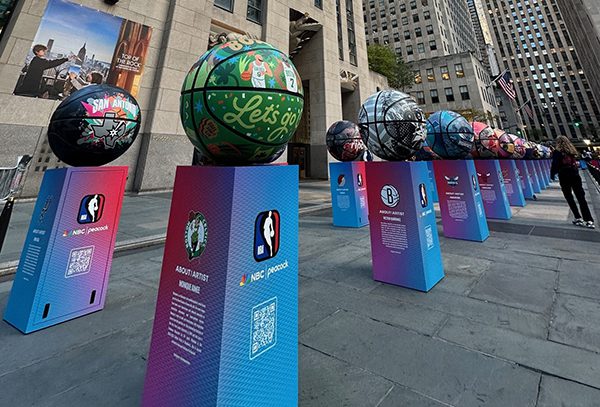Late last year, facebook founder and CEO Mark Zuckerberg declared that Beacon, Facebook’s new ad platform, would reinvent the advertising and marketing industries.
Although this breakthrough was dismissed and downgraded relatively quickly by his own community (along with swift action by moveon.org), it did make me think about my own career in what recently has been coined as “non-traditional marketing.” Are promotions and event marketing still valid in the 21st century?
Absolutely!
When I launched my event marketing career 20 years ago as an intern in the Walt Disney World College program, I fell in love with the concept that a brand could create life-long relationships and passionate loyal consumers through its behavior. Non-traditional marketing engages the consumer. There is a dialogue, an experience, and an exchange. If done authentically and with integrity, brand actions lead to a mutually beneficial relationship with the consumer for a long time.
Seems like a no-brainer. However, over the past few decades, there has been the perception that event marketing takes a backseat to traditional marketing, which I define as messaging. And with that comes the discomfort that reverberates about every seven years when even those in the non-traditional marketing field question how long we can last.
Well, those days appear to be over.
Non-traditional marketers have experienced great growth, and more frequently are interacting on a regular basis with top-level brand marketers. They’ve given us a proverbial seat at the “table” during strategic planning, and we’re receiving corresponding budgeting allocations — which are increasing each year. While not in the center of the marketing mix, we have gotten increasingly closer.
Why? Because we have a better understanding of the consumer, and promotions and events create real, tangible value that is grounded in behavior and action. Actions speak louder than words, and how a brand behaves is more important to consumers than what it says.
Proctor & Gamble knows this is true, and that’s why they opened public restrooms for the second year in a row in New York City’s Times Square during the 2007 holiday season. It was the perfect venue to sample its Charmin Ultra bath tissue, complete with attendants to service each stall after every use and hand out coupons. Charmin gave new meaning to “go in style,” and filled a need for hundreds of thousands of shoppers and tourists. And that’s a positive brand experience that consumers are not likely to forget.
Today’s consumers are smarter than ever. They understand the value of loyalty to a brand, and also have great expectations for what they’ll receive in exchange for that loyalty. At the top of their list is brand collaboration/customization — building a new brand together. And no one knows how to do that better than Nike.
Concurrent with the launch of Nike iD online, which allows consumers to customize their shoes, Nike opened the Nike iD Studio in March 2005 on Elizabeth Street in New York City. The exclusive, by-invitation-only store was staffed by hipster design consultants, who worked one-on-one with consumers to pick the colors, select the materials, choose the style and add their personal motto to create one-of-a-kind sneakers. What started as a three-month test turned into a two-and-a-half-year phenomenon.
In the fall of 2007, Nike decided to take its one-on-one customization to the masses — and the next level — the fifth floor of NikeTown in Manhattan. Now visitors to NikeTown can make an appointment with a design consultant and create their own collaborative brand of Nike shoes.
But Nike isn’t only creating new products that link the consumer and brand together. That experience builds brand loyalty. A superior brand experience can turn consumers into active promoters. Advertising dollars can only get you so far — a consumer waxing poetic about their favorite brand is priceless.
There will always be someone declaring that the sky is falling, or that a new era in advertising and marketing has begun. But there is no substitute for authentic one-on-one experiences and dialogue. And as long we remember that, “non-traditional” marketers can all sleep a little better at night.
Charlie Horsey is the CEO and founding partner of mktgpartners, an entertainment and sports marketing agency that provides integrated marketing solutions and services for some of the biggest brands in the world including Apple, CBS, NCAA, Nike, Jamba Juice, KAO Brands, Rémy Cointreau USA and YouTube. Visit his website at www.mktgpartners.net or reach him directly at charlie@mktgpartners.net
TALK TO US!
We’d like to hear what you have to say about us or about news, trends and issues in promotion marketing.
To contact the editor:
Mail: Promo, 249 W. 17th St., 3rd Floor, New York, NY 10011-5300
Fax: 913-514-7179
E-mail: larry.jaffee@penton.com
Phone: 212-204-4222
 Network
Network

